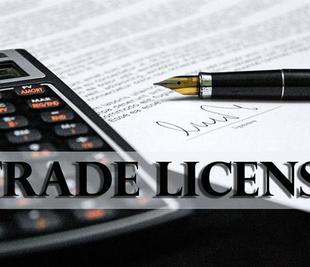
Ministry of Commerce, Manufacturing, Business Development, Cooperatives and Consumer Affairs

Consumer Credit News
Published: 2014-12-17
Author: Merlicia Williams-Davy
Author: Merlicia Williams-Davy
As customary, during the Christmas season, consumers immerse into several credit arrangements such as hire purchase and layaway plans, oblivious of their obligations attached to such purchases. In light of this, the Consumer Affairs Department encourages every consumer to be extra vigilant and educate themselves with the following information from the Consumer Credit Act No. 29 of 2006.
Hire-Purchase Agreement
All purchases made under the hire-purchase agreement must be in writing using the prescribed form. Forms must be typewritten in a font size no smaller than nine-points in the type known as Times Roman.
The form must specify the following:
- The date on which the agreement commenced.
- The number of installments to be paid.
- The amount or minimum amount of each installment.
- The date or the mode of determining the date on which each installment is payable.
- The method by which periodic balances are calculated and by which interest is calculated on those balances.
- The rate of interest charged.
A hire-purchase agreement is void if it includes a provision that:
1. An owner or any person acting on his behalf is authorized to enter forcibly on any premises for the purpose of taking possession of goods which have been let under a hire-purchase agreement.
2. An owner requires the hirer to purchase any extended warranty during the hire-purchase agreement period.
Care of goods, (Sec. 14 [1])
A hirer must:
(a) take as much care of the goods to which the hire-purchase agreement relates as a reasonable man would, under similar circumstances, take care of his or her own goods of the same bulk, quality and value;
(b) However, the hirer should not be responsible for the loss, destruction or deterioration of the goods if he or she has taken the amount of care described in paragraph (a).
Termination, (Sec. 20)
(1) Under a hire-purchase agreement, before the final payment falls due, the hirer is entitled to terminate the agreement by giving notice of termination in writing to the owner. At the same time, or prior to termination of this agreement, he or she must deliver the goods to the owner during ordinary business hours at the place at which the owner carries on business or to the place specified for that purpose in the hire-purchase agreement.
(2) On termination of the hire-purchase agreement, the hirer should be liable, without prejudice to any liability that has accrued before the termination, to pay the amount due, if any, in respect of the hire-purchase price immediately before the termination.
(3) Where a hirer gives notice of termination of a hire-purchase agreement without delivering the goods as required by subsection (1), such notice shall be of no effect and the hire-purchase agreement shall remain in full force.
Entitlement to rebates, (Sec. 23)
(1) Subject to subsection (4), where the hire-purchase price is paid before the date of the final payment, a hirer shall be entitled to a rebate -
(a) of the hire-purchase charges;
(b) for insurance, if the hirer requires any contract for insurance in respect of which he or she has been debited with the premiums under the hire-purchase agreement;
(c) for maintenance or repairs, if the hirer requires any contract for maintenance or repairs in respect of which he or she has been charged under the hire-purchase agreement.
(2) For the purposes of this section a rebate (a) of the hire-purchase charges -
(i) means the hire-purchase charges multiplied by the remaining months of the hire-purchase agreement, divided by the total number of months needed to complete the hire-purchase agreement;
(ii) where it is agreed in a hire-purchase agreement that the hire-purchase charges have been calculated on a simple interest basis at a rate specified in the hire-purchase agreement on the amount not including the hire-purchase charges outstanding from month to month, means the amount of interest attributable to the period of completed months still to go under the hire-purchase agreement;
Defaults in payments, (Sec. 24)
(1) Where a hirer fails to pay any installment of the hire-purchase price which is then due, the owner may attempt to collect the unpaid sums or employ the services of a debt collector to do so.
(2) An owner or debt collector employed pursuant to subsection (1) shall in attempting to collect the unpaid sum -
(a) identify himself or herself to the hirer;
(b) state to the hirer -
(i) the number of the installments and the total sum which the hirer has failed to pay;
(ii) the name of the owner on whose behalf he or she is acting;
(iii) that he or she has thirty days within which to dispute the validity of the default;
(iv) that if within the thirty day period the hirer disputes the default he or she will obtain verification of the default and a copy of the verification will be mailed to the hirer by the debt collector.
(3) Where the hirer notifies the owner or debt collector within the thirty day period that the default is disputed, the debt collector shall cease collection of the sum of money until the owner or debt collector obtains verification and a copy of such verification is mailed to the hirer by the owner or debt collector.
(4) An owner or debt collector shall not -
(a) use or threaten to use violence or other criminal means to harm the physical person, reputation or property of any person;
(b) use obscene or profane language ;
(c) use any false representation or deceptive means to collect or attempt to collect the unpaid sum or to obtain information concerning a hirer;
(d) threaten to take any action that cannot legally be taken or that is not intended to be taken;
(e) communicate or threaten to communicate to any person credit information which is known or which should be known to be false, including the failure to communicate that an unpaid sum is disputed;
(f) collect any amount that is not expressly authorized by the agreement;
(g) collect any money during the hours of 7p.m. to 7a.m.
(5) If a hirer owes on more than one hire-purchase agreement and he or she makes any single payment to an owner or debt collector with respect to such hire-purchase agreements, the owner or debt collector may not apply such payment to any default which is disputed by the hirer and, where applicable, shall apply such payment in accordance with the hirer's direction.
Repossession by owner, (Sec. 25)
If there has been a breach of contract under a hire-purchase agreement, and less than seventy percent of the hire-purchase price has been paid, the owner has the right to repossess that good.
However, if seventy percent or more of the hire-purchase has been paid, the owner cannot repossess that good unless it is done by a court action.
Notice of Intention to Repossess, (Sec. 26)
(1) An owner should not exercise his or her right to repossess unless he or she has given to the hirer twenty-one clear days notice in the form prescribed by the Regulations.
(2) The notice required under subsection (1) shall -
(a) specify that the hirer has failed to pay installments of the hire-purchase price which are due;
(b) require the hirer to remedy the default within a period of not less than ten days after the service of the notice.
The Consumer Affairs Department of the Ministry of Commerce, Business Development, Investment and Consumer Affairs urges everyone to take charge, shop wisely and be a wise consumer.



 [more]
[more]